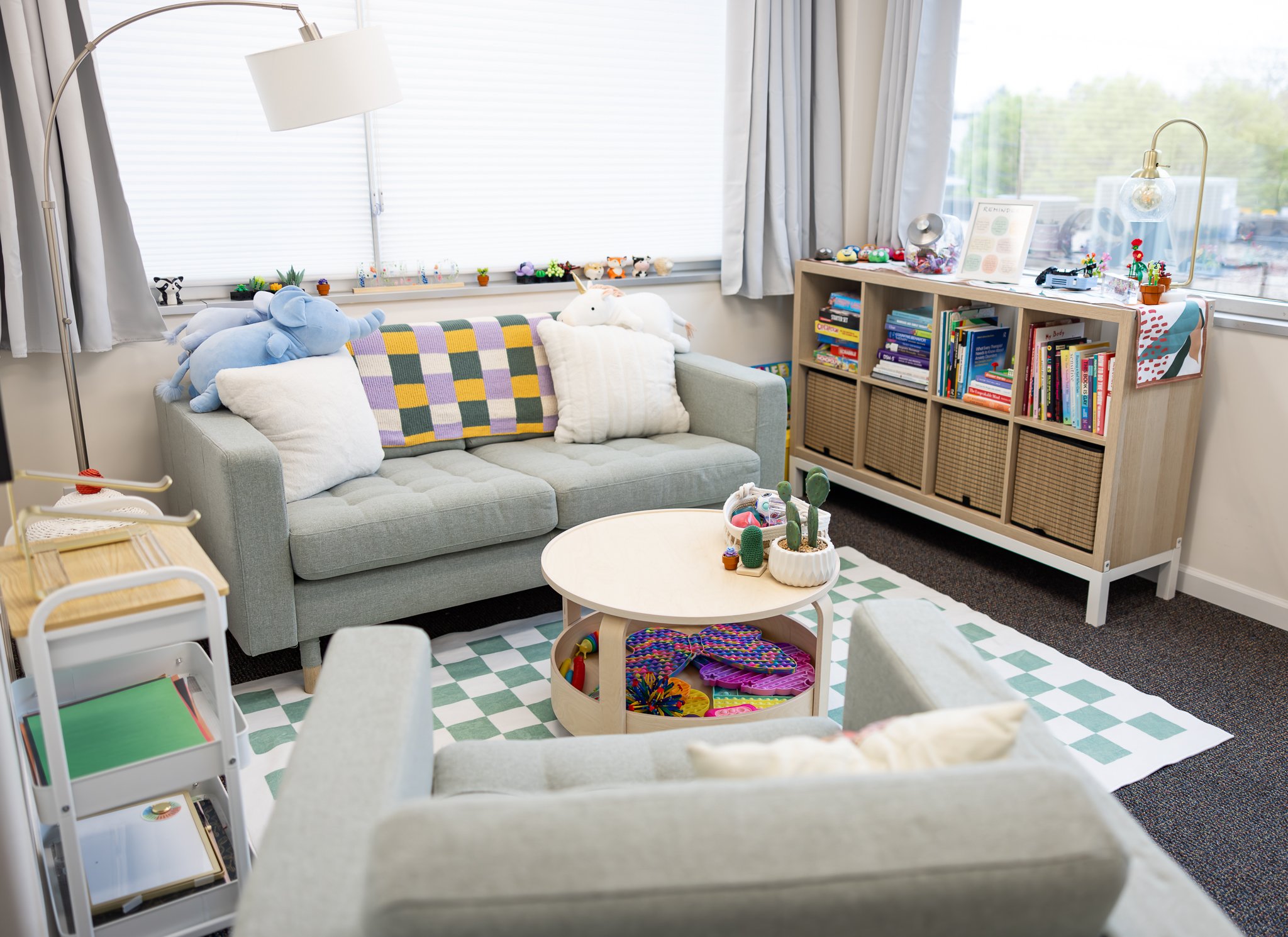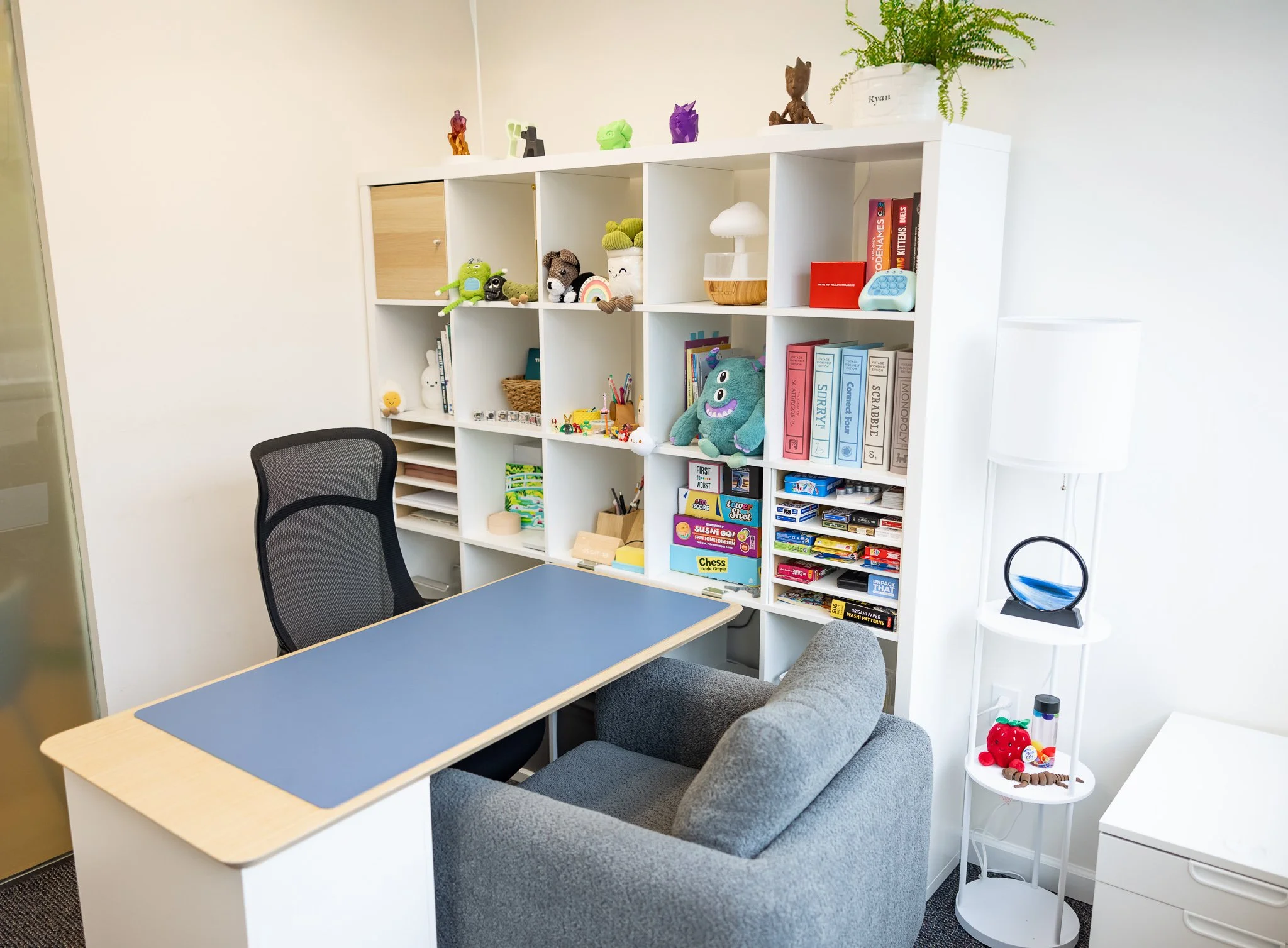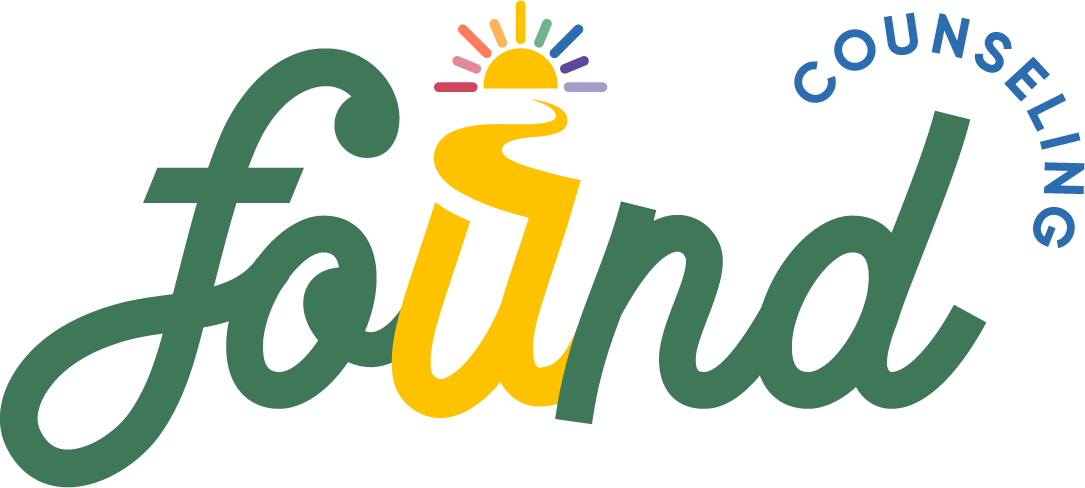Services Offered

THERAPY FOR KIDS
Every child deserves care that centers who they truly are.
We believe in curiosity over compliance, connection over control, and look at what is beyond the child’s behavior, such as what the behavior is communicating. We also are respectful of autonomy, all communication styles, and sensory needs.
-
Neurodivergent kids (Autistic, ADHD, PDA, 2e, Highly Sensitive Humans)
LGBTQIA+ youth exploring gender, identity, and expression
Kids navigating anxiety, depression, trauma, or life changes
Therapy should reflect your child, not some one-size-fits-all method. We integrate their interests and strengths into our sessions and that may look like incorporating: music, games, play, creative expression, movement, VR, and more. Sessions adapt to their comfort, not the other way around. Empowering kids to make choices helps foster real growth and healing.
-
Apply neuro- and gender-affirming evidence-based research to each child’s individual needs.
We center connection and the therapeutic relationship as the foundation of growth and healing.
The first 4+ sessions are often dedicated to helping your child feel safe and understood in the therapy space.
It can take weeks to build a therapeutic relationship, especially if this is their first time in therapy.
We ask families to commit to at least 4 months of therapy if they can to allow for trust, growth, and meaningful progress.
-
Manage anxiety, mood, meltdowns, and shutdowns
Psychoeducation on neurotype and brain development to better understand behaviors and needs
Build emotional regulation and coping strategies
Navigate transitions at school, home, and in life
Explore identity, body image, and self-worth
Unmask safely and develop a strong sense of self
Honor neurodivergence and diverse gender and sexual identities
Prioritize safety, consent, autonomy, and choice
Learn concrete strategies for emotional regulation, boundaries, and routines
Receive psychoeducation on trauma, neurodivergence, or identity when helpful
A mix of structure and flexibility, focused on what works for each child
Develop more honest and effective communication
Reduce shutdowns or escalations in conflict
Build a stronger understanding of needs and limits

THERAPY FOR TEENS
To feel seen, supported, and empowered, as you are.
Teens are in the process of discovering who they are, and therapy can be a powerful support and resource along the way. Our goal is to guide and empowering teens, not direct or overcorrect them.
-
Neurodivergent kids (Autistic, ADHD, PDA, 2e, Highly Sensitive Humans)
LGBTQIA+ youth exploring gender, identity, and expression
Teens facing anxiety, depression, overwhelm, or burnout
Those navigating transitions, family stress, or complex trauma
-
We know that real, lasting change happens when everyone is on board, and that can include caregivers. At the same time, your teen’s privacy and autonomy are key to building therapeutic trust and the relationship.
We often include caregivers in ways that align with your teen’s comfort and consent for balanced collaboration.
We can provide regular check ins, updates, and practical tools for life outside of therapy to also maintain open communication with families.
Therapy should reflect your teen, not some one-size-fits-all method. We integrate their interests and strengths into our sessions, which may look like incorporating: music, games, play, creative expression, movement, walk-and-talk therapy, VR, and more. Sessions adapt to their comfort, not the other way around.
Empowering kids to make choices helps foster real growth and healing.
-
Understand and manage anxiety, intrusive thoughts, and depressive moods
Navigate meltdowns, shutdowns, and emotional dysregulation
Psychoeducation on neurotype and brain development to better understand behaviors and needs
Practicing boundaries, asking for what you need, saying no
Learning what healthy connection feels like (and what it doesn’t)
Building trust, safety, and communication without pressure
Improve executive functioning, like organization and time management
Process trauma and develop tools for grounding and self-regulation
Build self-compassion, confidence, and a healthy sense of identity
Learn how to balance energy with tools like spoon theory
Build body neutrality, self-worth, and self-compassion
Unmask and embrace their authentic self
Explore systemic challenges and how they affect their lived experiences
Concrete strategies to help with emotional regulation, boundaries, and routines
Psychoeducation about trauma, neurodivergence, or identity when helpful
A mix of structure and flexibility, focused on what actually works with you
More honest and effective communication
Fewer shutdowns or escalations in conflict
A stronger understanding of needs and limits

THERAPY FOR ADULTS
You deserve to reconnect with your true self.
Adult therapy can help you understand yourself more deeply, navigate life's challenges, and build the confidence to live authentically, while honoring that you hold the knowledge and strength within yourself.
-
Neurodivergent folks (Autistic, ADHD, PDA, 2e, Highly Sensitive Humans)
LGBTQIA+ exploring and developing gender, identity, and expression
Seeking to live authentically and rebuild your relationship with yourself and others
Unpacking trauma or navigating life transitions with more intention and care
-
Our approach is affirming, inclusive, and grounded in the belief that you are the expert on your own life. We're here to support, not instruct, to walk with you as you navigate growth, healing, and self-discovery.
We recommend at least 4 months of therapy to build safety, connection, and space for real change.
You’ll be an active part of the process, with strategies you can use between sessions.
Therapy helps you understand your needs, your identity, and how to meet life with self-trust.
We’ll help you connect to affirming resources and community so you don’t have to do it all alone.
If you’re newly discovering you’re Autistic, an ADHDer, PDAer, 2e, or an HSP therapy can help you understand your brain, your boundaries, and how to thrive on your own terms.
-
Concrete strategies to help with emotional regulation, boundaries, and routines
Psychoeducation about trauma, neurodivergence, or identity when helpful
A mix of structure and flexibility, focused on what actually works with you
More honest and effective communication
Fewer shutdowns or escalations in conflict
A stronger understanding of needs and limits
Increased trust, connection, and emotional safety
Better follow-through on shared goals and agreements
A sense of moving through challenges as a team, not opponents
Improved conflict resolution skills
Greater empathy and understanding for each other’s perspectives
Enhanced intimacy and emotional closeness
Strengthened partnership and shared decision-making
More balance in taking responsibility and accountability in the relationship
Increased ability to navigate change and life transitions together

THERAPY FOR COUPLES
Couples work can help with understanding each other more deeply and reconnect in ways that feel safe, respectful, and sustainable.
If you're feeling disconnected, having communication struggles, or navigating different needs and expectations, couples therapy can help you find common ground and improve your relationship.
-
Gottman Method Certified, Level 1; Level 2 Pending
Neurodivergent relationship dynamics (Autistic, ADHD, PDA, HSPs, or 2e partners)
LGBTQIA+ identities, gender exploration, and shifting relationship roles
Emotional burnout, shutdowns, masking, and conflict avoidance
Life transitions like parenting, moving, or redefining the relationship
Long-term stress, trauma, or chronic misunderstandings
-
A space that’s neuro- and gender-affirming and inclusive of all partners’ identities and neurotypes
Support in understanding emotional responses like meltdowns or withdrawal
Tools for communicating in ways that honor each person's capacity and processing style
Collaborative goal-setting that reflects what everyone wants from your relationship
Room to unpack past experiences that may still impact how you show up in the present
A pace that matches your nervous systems, slow when needed, direct and compassionate when helpful
-
Concrete strategies to help with emotional regulation, boundaries, and routines
Psychoeducation about trauma, neurodivergence, or identity when helpful
A mix of structure and flexibility, focused on what actually works with you
More honest and effective communication
Fewer shutdowns or escalations in conflict
A stronger understanding of needs and limits
Increased trust, connection, and emotional safety
Better follow-through on shared goals and agreements
A sense of moving through challenges as a team, not opponents

Our services are catered to each individual and their unique goals and identities.
Who We Serve


